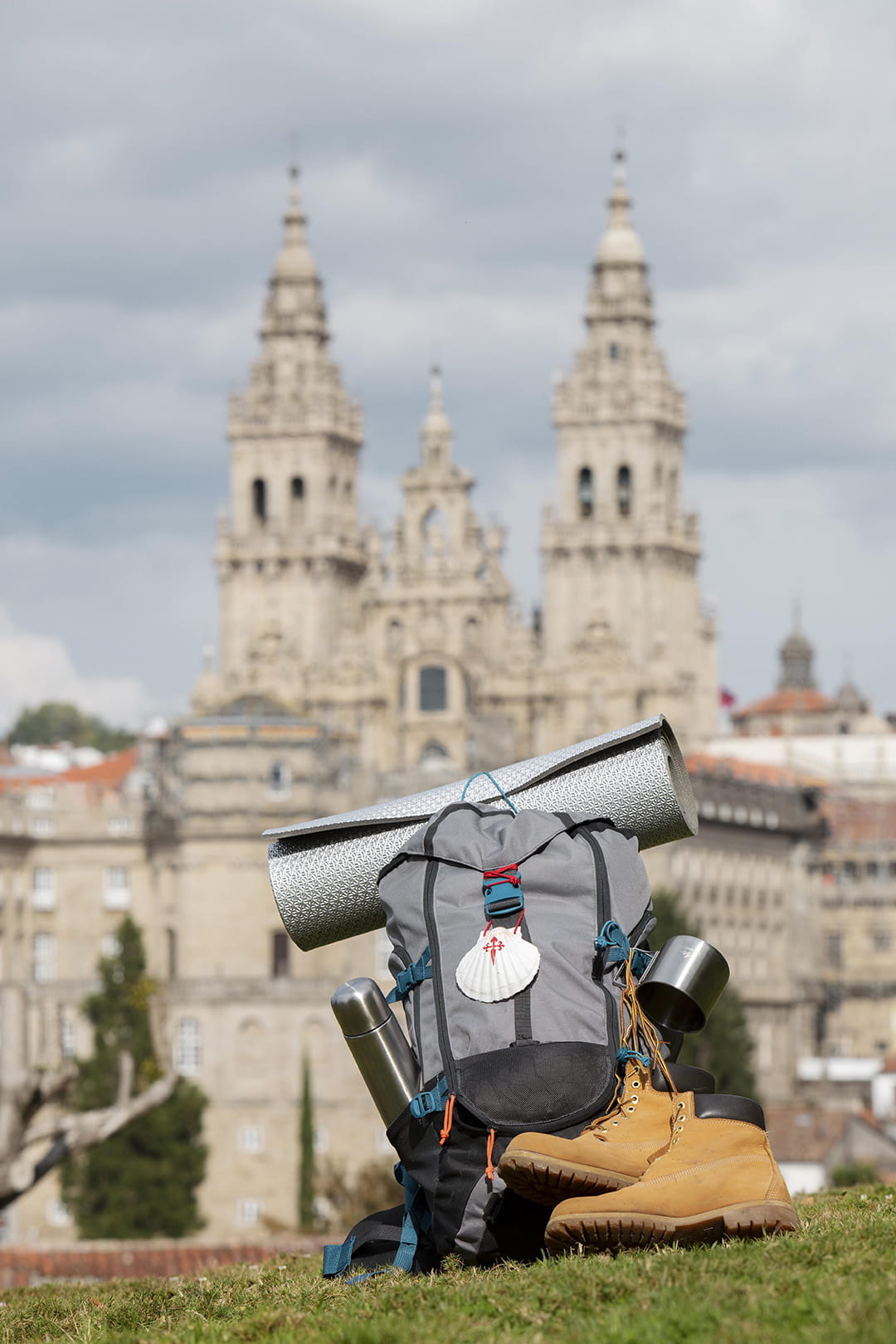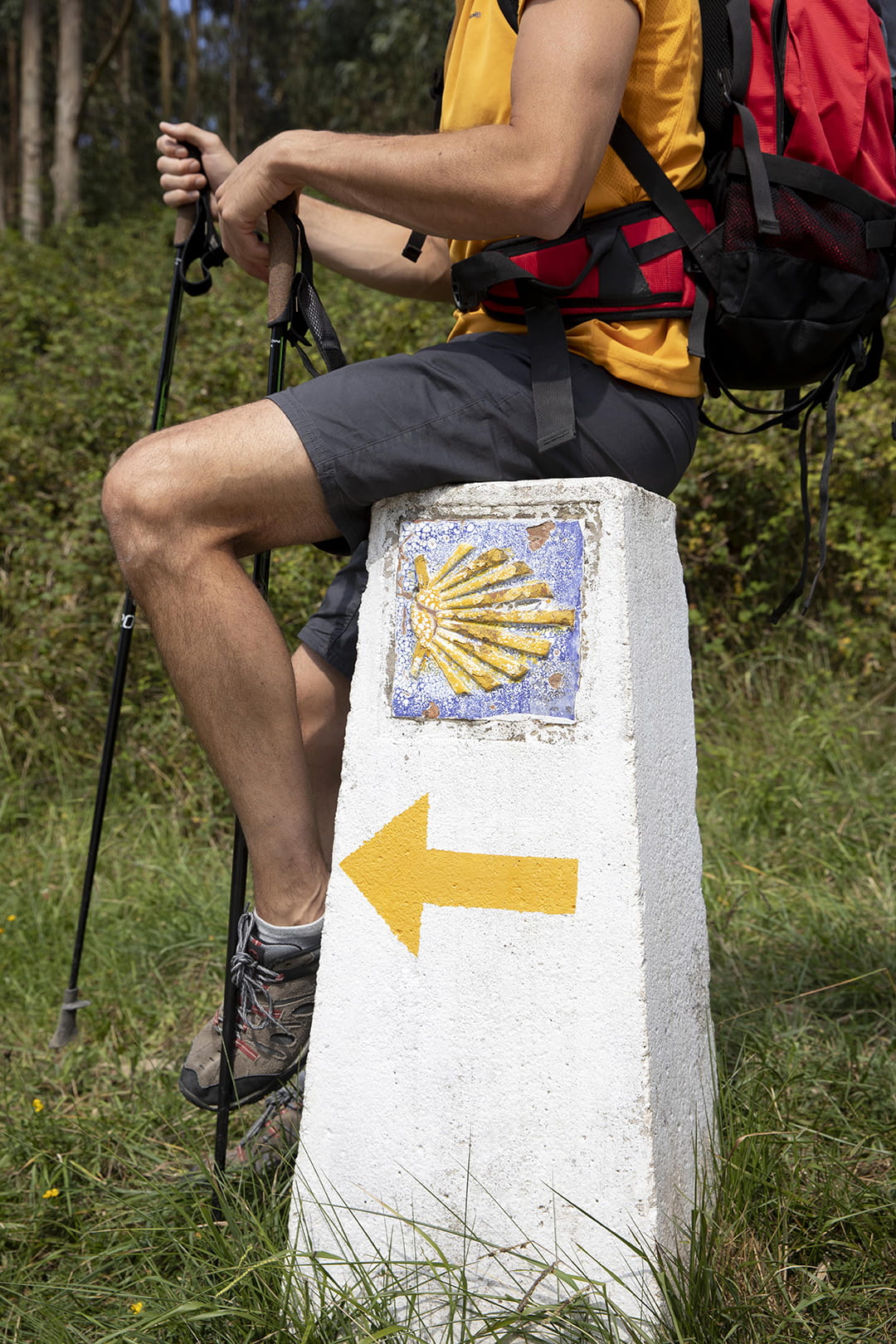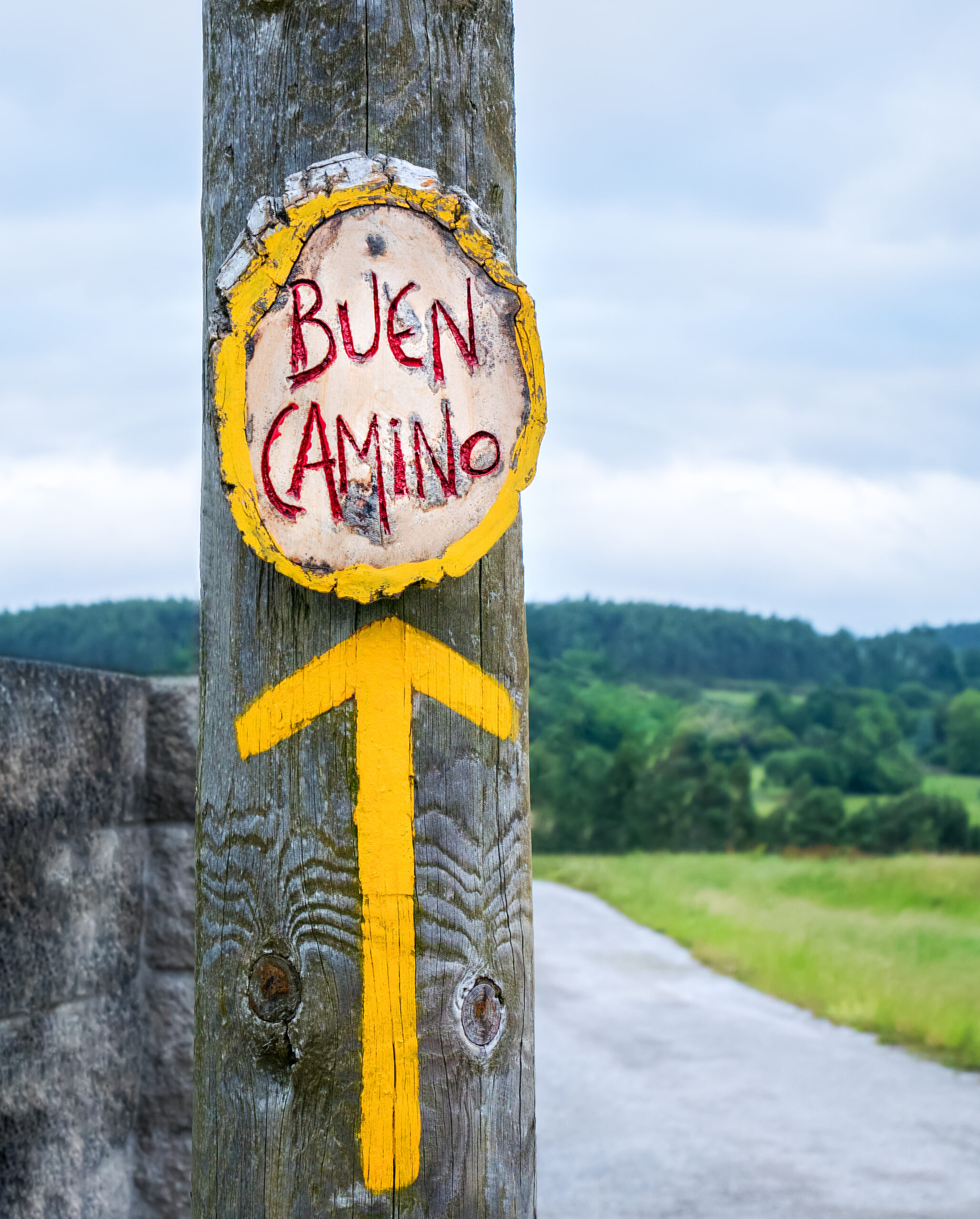the way
of Santiago
Hundreds of years and numerous routes bring millions of people to our wonderful city every year. In I LOVE COMPOSTELA we tell you the history of the roads.
a centuries-old tradition
that attracts millions of pilgrims
The Camino de Santiago is one of the oldest and most famous pilgrimage routes in the world, which has its origins in the Middle Ages. It is a route that leads to the city of Santiago de Compostela, where the tomb of the apostle Santiago is located. Tradition has it that Santiago was buried in this place after his death, and that his tomb was discovered in the ninth century by a hermit named Pelayo, who led to the construction of a church on the site.
Over the centuries, the Camino de Santiago became a very popular pilgrimage route, attracting thousands of people from all over the world. Pilgrims traveled the route to fulfill a promise, to do penance or simply to live a spiritual experience. Today, the Camino de Santiago remains a very popular route, attracting people of all ages and nationalities.
There are several routes of the Camino de Santiago, each with its own history and characteristics. The best known route is the French Way, which begins in Saint Jean Pied de Port, on the French border, and runs more than 800 kilometers through northern Spain. Another popular route is the Portuguese Way, which starts in Lisbon or Porto and runs along the northern coast of Portugal and western Spain. There is also the Camino del Norte, which runs along the northern coast of Spain, and the Camino Primitivo, which is the oldest route and begins in Oviedo.
Each of these routes has its own characteristics and attractions, but all have in common the beauty of the landscape, the rich history and the hospitality of the people who live along the way. For many pilgrims, walking the Camino de Santiago is a transformative experience, allowing them to disconnect from the world and connect with their spirituality. Undoubtedly, the Camino de Santiago is a route worth traveling at least once in a lifetime.
The French Way
The French Camino de Santiago, also known as the French Way, is the most emblematic and popular of all the variants of the Camino de Santiago. With an extension of approximately 800 kilometers, this route crosses the north of Spain from Saint-Jean-Pied-de-Port, in France, to the majestic city of Santiago de Compostela.
The French Way is a unique and transformative experience that combines history, spirituality and natural beauty. Pilgrims embark on a journey that takes them through beautiful landscapes, charming villages and historic towns. From the mountains of the Pyrenees to the vast plains of Castile and the green hills of Galicia, each stage of the route offers a diversity of landscapes that captivate the senses.
The official start of the route is in Saint-Jean-Pied-de-Port, a picturesque village in the southwest of France. From there, pilgrims cross the challenging Pyrenees, where they face steep climbs and descents that test their physical and mental endurance. However, the reward comes with breathtaking views and the feeling of overcoming a personal challenge.
As pilgrims cross the border into Spain, they enter Navarra, a region full of charm and rich in history. The route passes through medieval villages such as Puente la Reina and Estella, where hikers can enjoy the medieval architecture and discover the hospitality of its inhabitants.
One of the highlights on the French Way is the city of León, which boasts an impressive Gothic cathedral and an old town full of history. Here, pilgrims can immerse themselves in the cultural richness of the region and marvel at the architectural beauty that surrounds them.
As walkers approach Galicia, the final region of the Camino, the landscape becomes greener and more mountainous. Small towns like O Cebreiro and Sarria become places to rest and meet other pilgrims. It is in this final stretch where the excitement increases as the final destination approaches: the city of Santiago de Compostela.
Arrival in Santiago is a moment of great joy and gratitude. Pilgrims are welcomed by the majestic Cathedral of Santiago, an impressive example of Romanesque architecture. Inside the cathedral is the tomb of St. James the Apostle, whose presence gives a sense of transcendence and spirituality.
The French Way is not only a physical journey, but also an inner experience. Along the route, pilgrims have the opportunity to reflect, connect with nature and discover their own spiritual path. Living together with other walkers of different cultures and nationalities creates an atmosphere of camaraderie and mutual enrichment.
The French Way of Saint James is much more than a hike. It is a journey of self-discovery, a search for meaning and an encounter with history and spirituality. Each step taken on this millenary path is a step towards personal transformation and connection with something greater than oneself. The French Way continues to be a unique and transcendental experience that leaves an indelible mark on the lives of those who venture along it.

The Portuguese Way
The Portuguese route of the Camino de Santiago is one of the most popular and picturesque variants for pilgrims wishing to reach the city of Santiago de Compostela. With an extension of approximately 240 kilometers, this route has earned the recognition and affection of hikers, offering a unique experience that combines the history, culture and natural beauty of Portugal and Spain.
The Portuguese Way begins in the city of Lisbon, the beautiful Portuguese capital full of charm and tradition. From there, pilgrims make their way north, following ancient trails and cobblestone streets. During the first days of the trek, you have the opportunity to explore Lisbon’s historical and artistic treasures, such as the Jerónimos Monastery and the Belém Tower.
As the route progresses, the landscapes gradually change. Pilgrims pass through small villages and charming towns, where traditional architecture and decorative tiles blend with modern life. One of the highlights along the way is Coimbra, famous for its ancient university and bohemian atmosphere. Here, pilgrims can immerse themselves in history and enjoy the unique atmosphere of the city.
The Portuguese route is dotted with sacred and spiritual places that invite reflection and contemplation. One of the most outstanding destinations is the Shrine of Fatima, one of the most important Catholic pilgrimage centers in the world. Many pilgrims take the opportunity to pause and visit this sacred site, where the Virgin Mary is believed to have appeared to three children in 1917.
As you move north, the landscape becomes more rural and bucolic. The green fields, vineyards and picturesque forests provide a sense of serenity and peace to walkers. Along the way, there are hospitals, hostels and other resting places where pilgrims can recharge their batteries and share experiences with other travelers.
One of the most exciting moments on the Portuguese route is crossing the border between Portugal and Spain. Walkers experience a change of landscape, culture and language as they enter Galicia, the northwestern region of Spain. As they approach Santiago de Compostela, the excitement and anticipation builds. The cathedral of Santiago, with its majestic façade and impressive square, is the final destination of the Camino and the point where pilgrims can obtain the coveted Compostela, the certificate of their pilgrimage.
The Portuguese route of the Camino de Santiago offers an unforgettable experience, full of enriching encounters, breathtaking landscapes and moments of introspection. Over the centuries, thousands of people have walked this route in search of adventure, spirituality and self-knowledge. Whether you choose to do the Camino alone or in company, the Portuguese route awaits you with open arms, ready to leave you amazed and transformed by the magic of the Camino de Santiago.
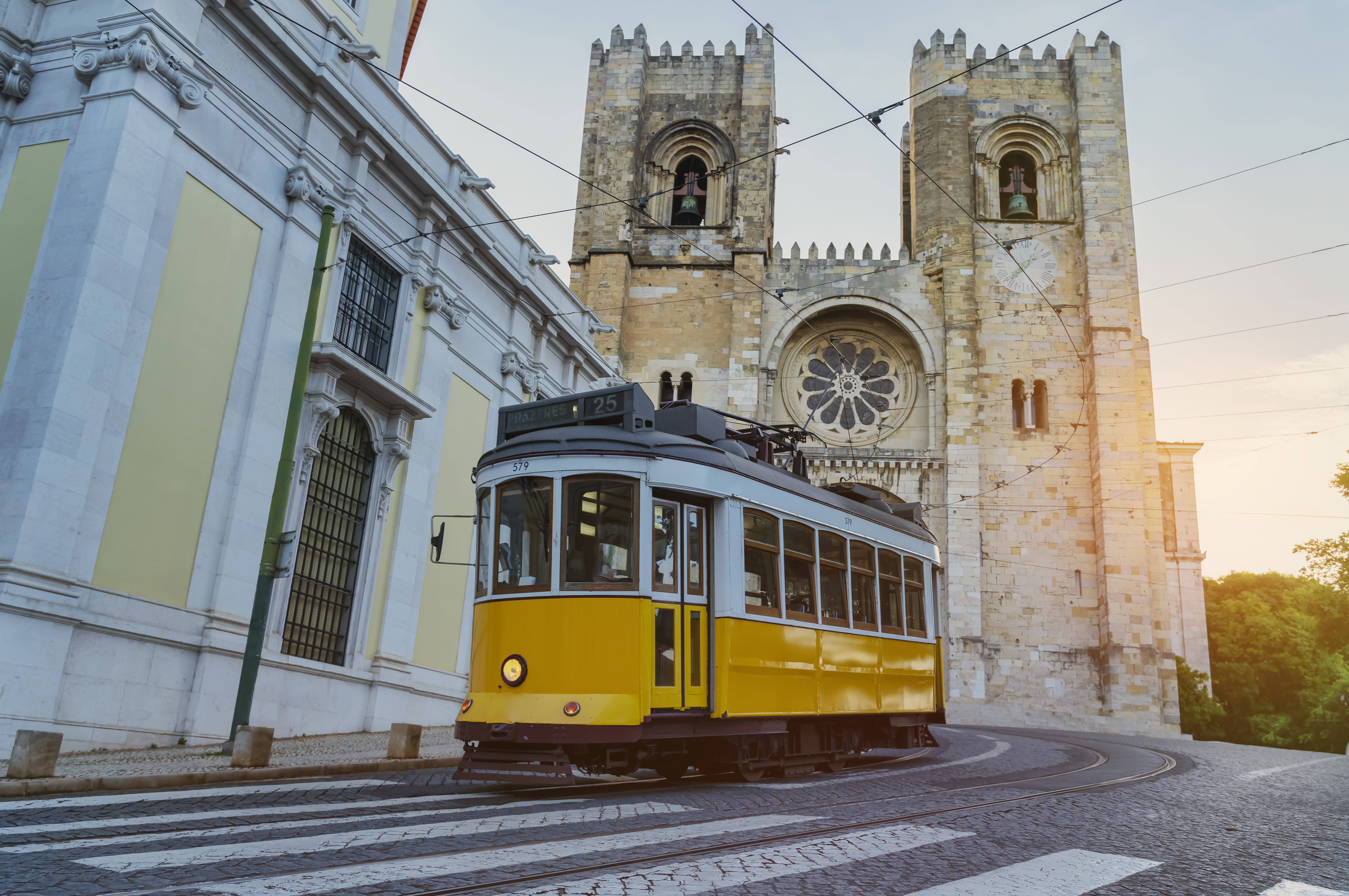
The English Way
The English Route of the Camino de Santiago is a fascinating and historic route that has attracted pilgrims from all over the world for centuries. With a tradition dating back to the Middle Ages, this route offers a unique experience filled with breathtaking scenery, cultural heritage and a deep spiritual connection.
The traditional starting point of the English Route is the port city of Ferrol, on the northwest coast of Spain. Pilgrims embark on a journey of approximately 120 kilometers to Santiago de Compostela. As you proceed along the route, you encounter a captivating combination of coastal scenery, picturesque rural villages and lush green landscapes. From sheer cliffs overlooking the Atlantic Ocean to overgrown valleys, every step reveals a new natural wonder.
In addition to its natural beauty, the English Route has a rich historical and cultural heritage. During the tour, pilgrims have the opportunity to visit charming towns such as Pontedeume, Betanzos and A Coruña. These medieval towns are steeped in history and offer impressive monuments, such as the Church of Santa María del Campo in Betanzos, which dates back to the 12th century.
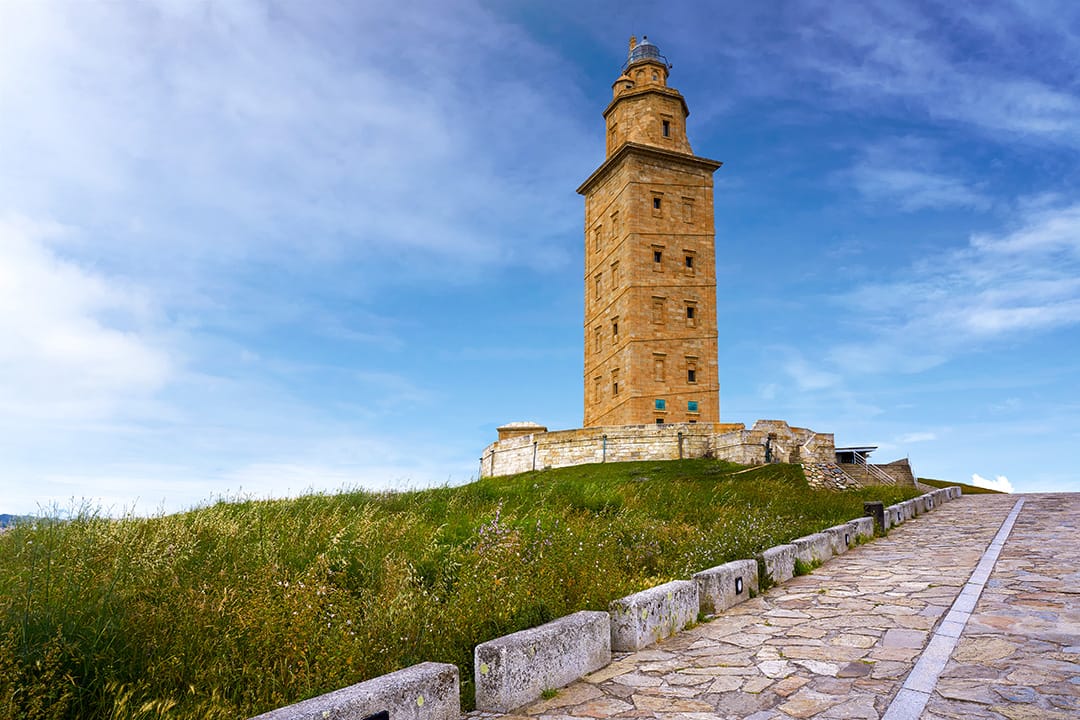
The road to the north
The Camino del Norte de Santiago de Compostela, also known as the Camino de la Costa, is a stunning and breathtaking route that winds along the northern coast of Spain. This route offers a unique experience for pilgrims seeking a combination of seascapes, cultural richness and a deep spiritual connection.
The Camino del Norte route starts in the border town of Irun, near the French border, and extends for approximately 825 kilometers to the majestic city of Santiago de Compostela. As pilgrims proceed, they encounter a captivating mix of coastal scenery, verdant forests and charming fishing villages.
Along the way, pilgrims witness the magnificence of the Cantabrian Sea, with its impressive cliffs and pristine beaches. Each sunrise and sunset along the coast is an unforgettable spectacle that leaves a lasting impression on the hearts of those who experience it.
In addition to its natural beauty, the Camino del Norte is replete with historical and cultural riches. Pilgrims have the opportunity to visit emblematic cities such as San Sebastian, Bilbao and Santander, where architecture, art and local gastronomy are intertwined in a unique combination.
One of the highlights of the route is a visit to the town of Guernica, famous for its Guernica tree and its history related to the bombing during the Spanish Civil War. Pilgrims can absorb the historical significance of this place and reflect on the horrors of war and the importance of peace.
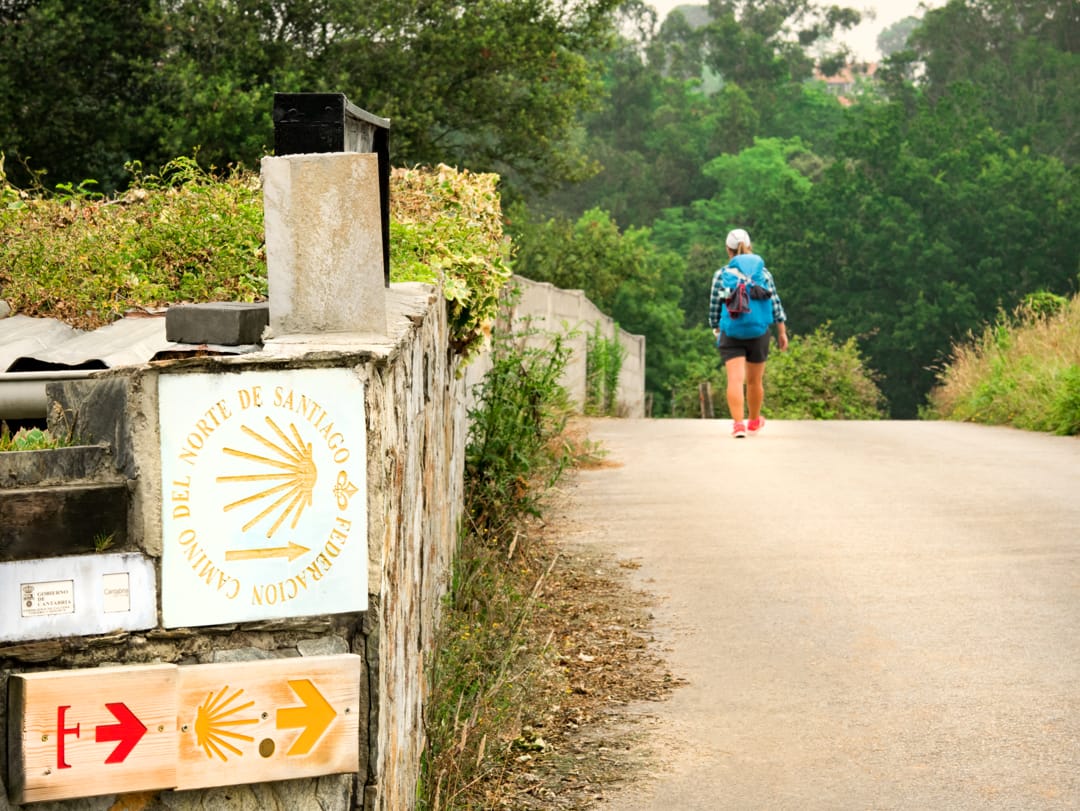
The primitive way
The Primitive Route of the Camino de Santiago is one of the oldest and most challenging routes for pilgrims seeking to reach the sacred city of Santiago de Compostela.
The traditional starting point of the Primitive Route is the city of Oviedo, in the Asturias region of northern Spain. From there, pilgrims venture through mountainous landscapes, crossing lush forests, crystal clear rivers and picturesque valleys.
Along the way, pilgrims encounter charming towns and villages, where tradition and local hospitality intertwine. Places like Grado and Tineo offer a glimpse of rural life and Asturian culture, with their stone houses, historic churches and traditional festivals.
One of the most challenging aspects of the Primitive Route is its steep climbs and descents. Pilgrims must face mountains and hills, such as the famous mountain pass of Acebo, which tests their physical and mental endurance. However, the reward comes in the form of breathtaking panoramic views and the satisfaction of overcoming obstacles.
As the route progresses, pilgrims also have the opportunity to visit places of great historical and religious importance. The cathedral of San Salvador in Oviedo, with its Romanesque architecture, is a pilgrimage site in itself. In addition, the Primitive Route passes through the charming city of Lugo, famous for its ancient Roman walls, declared a World Heritage Site by UNESCO.
The Primitive Route is an intense and rewarding experience for those seeking a deep connection with history and spirituality. Each step on this ancient road carries with it centuries of tradition and devotion. The camaraderie among the pilgrims grows stronger as they share moments of fatigue, overcoming and reflection.
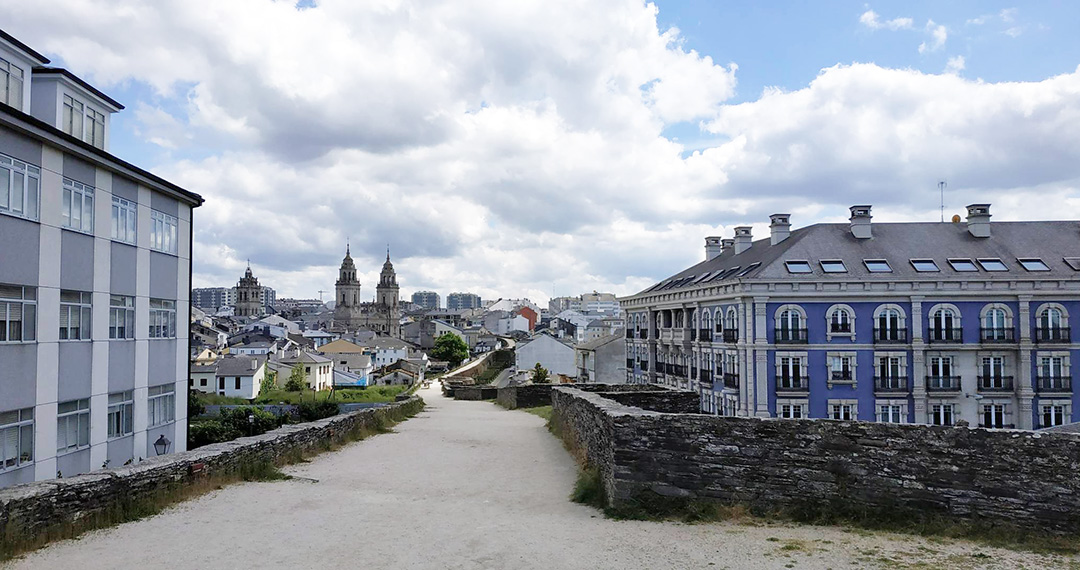
News
Thumbelina’ encourages the youngest children in Santiago for the Day of the Galician Letters
The children’s play ‘Thumbelina’ comes to Compostela on May 18 at Teatro La Salle on the occasion of the Día das Letras Galegas. It is designed to make the whole family enjoy this timeless tale.
Holi Gaiás race returns to Santiago to celebrate sport with lots of colors
The Cidade da Cultura of Santiago de Compostela will host one more year the Holi Gaiás race, which is in its sixth edition. The event will take place on Saturday, June 8 with a circuit designed for all audiences.
Things to do in May in Santiago de Compostela
The month of May arrives to the Galician capital with a great cultural offer to celebrate the good weather. As always, we have made a complete list of all the concerts, events and performances so you know what to do in May in Santiago de Compostela.

